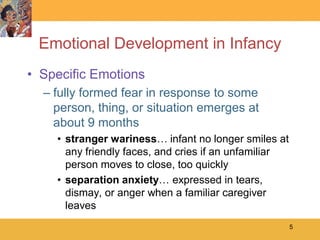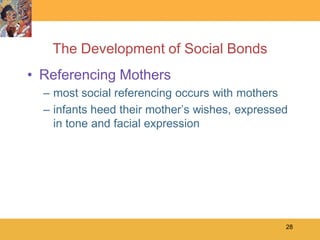Infants develop emotionally and socially in the first two years of life. They progress from experiencing basic emotions like pleasure and pain to more complex social emotions. Infants form attachments to caregivers that influence their social and emotional development. Multiple theories try to explain this development from psychoanalytic, behavioral, cognitive and socio-cultural perspectives. Parents and culture both influence infant development through interactions and socialization.





























